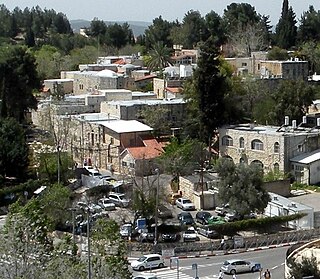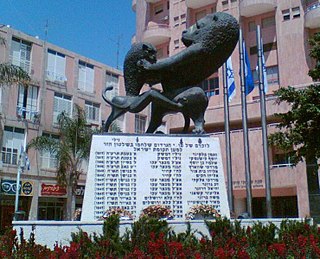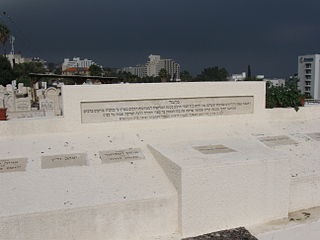 W
WThe 1929 Arab riots in Palestine, or the Buraq Uprising, also known as the 1929 Massacres, refers to a series of demonstrations and riots in late August 1929 when a long-running dispute between Muslims and Jews over access to the Western Wall in Jerusalem escalated into violence.
 W
WThe 1936–1939 Arab revolt in Palestine, later came to be known as "The Great Revolt", was a nationalist uprising by Palestinian Arabs in Mandatory Palestine against the British administration of the Palestine Mandate, demanding Arab independence and the end of the policy of open-ended Jewish immigration and land purchases with the stated goal of establishing a "Jewish National Home". The dissent was directly influenced by the Qassamite rebellion, following the killing of Sheikh Izz ad-Din al-Qassam in 1935, as well as the declaration by Hajj Amin al-Husseini of 16 May 1936 as 'Palestine Day' and calling for a General Strike. The revolt was branded by many in the Jewish Yishuv as "immoral and terroristic", often comparing it to fascism and Nazism. Ben Gurion, however, described Arab causes as fear of growing Jewish economic power, opposition to mass Jewish immigration and fear of the English identification with Zionism.
 W
WThe Deir Yassin massacre took place on April 9, 1948, when around 130 fighters from the Far-right wing Zionist paramilitary groups Irgun and Lehi killed at least 107 Palestinian Arabs, including women and children, in Deir Yassin, a village of roughly 600 people near Jerusalem. The assault occurred as Jewish militia sought to relieve the blockade of Jerusalem during the civil war that preceded the end of British rule in Palestine.
 W
WThe Irgun was a Zionist paramilitary organization that operated in Mandate Palestine between 1931 and 1948. The organization is also referred to as Etzel, an acronym of the Hebrew initials, or by the abbreviation IZL. It was an offshoot of the older and larger Jewish paramilitary organization Haganah. When the group broke from the Haganah it became known as the Haganah Bet, or alternatively as haHaganah haLeumit or Hama'amad. Irgun members were absorbed into the Israel Defense Forces at the start of the 1948 Arab–Israeli war.
 W
WThe Jewish insurgency in Mandatory Palestine, known in the United Kingdom as the Palestine Emergency, was a paramilitary campaign carried out by Zionist underground groups against British rule in Mandatory Palestine. The tensions between the Zionist underground and the British mandatory authorities rose from 1938 and intensified with the publication of the White Paper of 1939. The Paper outlined new government policies to place further restrictions on Jewish immigration and land purchases, and declared the intention of giving independence to Palestine, with an Arab majority, within ten years. Though World War II brought relative calm, the tensions again escalated into an armed struggle towards the end of the war, when it became clear that the Axis powers were close to defeat.
 W
WThe King David Hotel bombing was a terrorist attack carried out on Monday, July 22, 1946, by the militant right-wing Zionist underground organization the Irgun on the British administrative headquarters for Palestine, which was housed in the southern wing of the King David Hotel in Jerusalem during the Jewish insurgency in Mandatory Palestine. 91 people of various nationalities were killed, and 46 were injured.
 W
WYehuda Lapidot is an Israeli historian, former professor of biochemistry, and veteran of the Zionist militia Irgun.
 W
WLehi, often known pejoratively as the Stern Gang, was a Zionist paramilitary organization founded by Avraham ("Yair") Stern in Mandatory Palestine that used terrorist means in its actions. Its avowed aim was to evict the British authorities from Palestine by resort to force, allowing unrestricted immigration of Jews and the formation of a Jewish state, a "new totalitarian Hebrew republic". It was initially called the National Military Organization in Israel, upon being founded in August 1940, but was renamed Lehi one month later. The group referred to its members as terrorists and admitted to having carried out terrorist attacks.
 W
WOlei Hagardom refers to members of the two Jewish Revisionist pre-state underground organisations Irgun and Lehi, who were tried in British Mandate courts and sentenced to death by hanging, most of them in Acre prison. There were 12 Olei Hagardom.
 W
WPalestinian political violence refers to acts of violence or terror motivated by Palestinian nationalism. These political objectives include self-determination in and sovereignty over Palestine, the "liberation of Palestine" and recognition of a Palestinian state, either in place of both Israel and the Palestinian territories, or solely in the Palestinian territories. Periodically directed toward more limited goals such as the release of Palestinian prisoners in Israel, another key aim is to advance the Palestinian right of return.
 W
WSociety for the Defense of Palestine was a nationalist Arab militia, active during the 1936–39 Arab revolt in Palestine. The group was composed of Sunni Arab volunteers, mainly coming from Iraq and commanded by Iraqi Fawzi al-Qawuqji.
 W
WThe Tiberias massacre took place on 2 October 1938, during the 1936–39 Arab revolt in Tiberias, then located in the British Mandate of Palestine and today is located in the State of Israel.
 W
WZionist political violence refers to acts of violence or terror committed by Zionists. The period of Zionist political violence started on June 30, 1924, and continued on a sporadic basis.